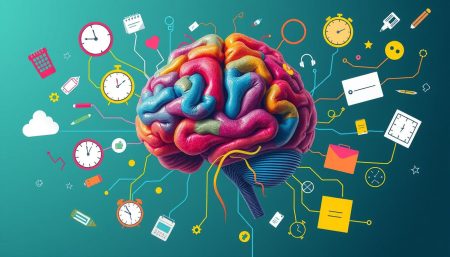Antisocial Personality Disorder (ASPD) is complex, like the human mind. Understanding this is the first step in managing antisocial personality disorder. Each person’s journey with ASPD is different, filled with unique symptoms and behaviors.
A comprehensive treatment guide is crucial. It helps those diagnosed and supports health practitioners and families. This guide is a beacon of hope.
This guide shows the power of intervention and the goal of effective ASPD interventions. While there’s no cure, treatment plans can help. These plans aim to reduce symptoms and improve social skills.
At the core of these plans is a professional diagnosis. It maps out the path to recovery, tailored to each person’s needs.
If you’re dealing with ASPD or know someone who is, it’s important to know. Treatment for ASPD is not one-size-fits-all. Tailored therapy plans are the best way to manage symptoms.
These plans help people deal with social situations better. Professionals use their knowledge and compassion to guide patients. They aim for a life filled with connection, not chaos.
Key Takeaways
- Understanding the intricacies of ASPD is crucial in forming appropriate treatment plans.
- Treatment aims to manage symptoms and improve social functionality, not to cure the disorder.
- Professional diagnosis is paramount to determining the most effective treatment path.
- Personalized therapy plans are key in managing antisocial personality disorder.
- Comprehensive guides serve as invaluable tools for individuals, families, and health practitioners alike.
- Access to a variety of ASPD interventions opens the door to better quality of life.
Understanding Antisocial Personality Disorder Symptoms
Antisocial Personality Disorder (ASPD) is a complex condition. It shows in many challenging behaviors and emotions. People with this disorder often have antisocial personality disorder symptoms. These symptoms can really affect their relationships and daily life. Let’s explore these symptoms and what causes them.
What Are the Key Symptoms?
The main symptoms of ASPD include impulsive behavior, a lack of empathy, and often breaking social rules. These symptoms show up in different ways:
- Disregard for the law: Doing things that could get you arrested
- Deception: Lying or using fake names for personal gain or fun
- Aggression: Getting into physical fights or assaults
- Impulsivity: Making quick decisions without thinking about the outcomes
- Lack of empathy: Not being able to understand or care about others’ feelings
- Recklessness: Not caring about the safety of oneself or others
- Irresponsibility: Not following through on work or financial commitments

The Role of Environment and Genetics
Studies show that both environment and genetics are key in ASPD. Growing up in a tough environment, like abuse or neglect, can lead to ASPD. At the same time, genetics might also play a part, with some research pointing to a genetic link.
| Environmental Factors | Genetic Factors |
|---|---|
| Childhood abuse or neglect | Family history of mental health disorders |
| Exposure to violent behavior | Genetic abnormalities linked to aggression |
| Peer rejection | Inherited temperamental traits |
It’s important to tackle both environment and genetics when treating ASPD. Knowing these factors helps doctors create treatment plans that fit each person’s needs. This way, they can address the specific causes and symptoms of antisocial personality disorder.
Diagnosing Antisocial Personality Disorder
Getting a correct diagnosis of Antisocial Personality Disorder (ASPD) needs a mix of expert knowledge and precise tools. Specialized tools and professional checks are key to spot this complex disorder from others.
Common Assessment Tools
Mental health experts use many tools to check behavior and traits. The Diagnostic and Statistical Manual of Mental Disorders, Fifth Edition (DSM-5), is a main guide for ASPD signs. Structured interviews and psychological tests also help a lot.
- Structured Clinical Interviews
- Psychopathy Checklists
- Personality Diagnostic Questionnaires
Importance of Professional Evaluation
For ASPD, a mental health pro’s skill and experience are vital. Symptoms can look like other disorders, so a detailed check is needed. This ensures the diagnosis is right and helps plan the best treatment.
These checks must happen in a professional setting. This makes sure the results are reliable and accurate.
Treatment Options for Antisocial Personality Disorder
Looking into ASPD treatment options is key for managing this complex condition. This section will explore the benefits of therapeutic interventions and how medication for ASPD supports treatment plans.
Therapy Approaches: Cognitive Behavioral Therapy
Cognitive Behavioral Therapy (CBT) is a mainstay in treating Antisocial Personality Disorder. It works to change negative thinking and behaviors. It helps people see and react to situations in new ways.
CBT is flexible, making it a good fit for many symptoms. This makes it a valuable part of ASPD treatment.
Medication As An Adjunct to Therapy
There’s no single drug for ASPD, but some help with related issues like depression or aggression. Below is a table showing common medications used with therapy:
| Medication | Used for | Notes |
|---|---|---|
| Antidepressants | Depression | Helps with depression that often goes with ASPD |
| Mood Stabilizers | Aggression | Good for controlling mood swings and aggression |
| Antipsychotics | Severe aggression | Used for serious behavioral issues |
Choosing the right medication for ASPD is crucial. It often involves a mix of drugs, carefully managed by doctors. This approach aims to improve symptoms while minimizing side effects.

The Role of Psychotherapy in Treatment
Psychotherapy is key in treating Antisocial Personality Disorder (ASPD). It helps people learn better social skills and manage their emotions. Through exploring personal experiences, it brings about change and helps individuals integrate into society.

Group Therapy Benefits
Group therapy offers a unique space for people to share their struggles with others. It’s a place to learn social skills and empathy. Seeing others’ experiences can spark deep insights and motivate for change.
Individual Therapy Techniques
Individual therapy focuses on a person’s unique needs. It creates a treatment plan that fits them perfectly. Therapists use various methods, like Cognitive Behavioral Therapy, to make treatment effective and meaningful.
| Therapy Type | Focus | Benefits |
|---|---|---|
| Group Therapy | Interpersonal Interaction | Peer support, empathy development, real-time feedback |
| Individual Therapy | Personalized Approach | Customized treatments, deep psychological insights, intense focus on personal issues |
The Importance of Support Systems
Managing Antisocial Personality Disorder (ASPD) gets easier with strong support systems. Family, friends, and society’s support are key to recovery. They help change behavior and improve social skills. Family and community involvement are crucial for overcoming disorder challenges.
Family Involvement in Treatment
Family involvement in treatment can change lives. It creates empathy and understanding, vital for dealing with ASPD. Family members offer daily support, helping stick to treatment plans.
Their help is key in managing ASPD’s daily needs. It ensures routines and responsibilities are followed.
Friends and Community Support
Friends and community networks add more support. They offer chances to learn and show positive social behaviors. This support comes from mental health groups, support meetings, and community activities.
These help build social skills and fight loneliness. They are important for those with ASPD.

| Support Level | Benefits |
|---|---|
| Family | Provides stability, monitors treatment progress, encourages positive habits |
| Friends | Encourages social interaction, offers emotional support, helps in stress relief |
| Community | Access to resources, enhanced accountability, exposure to social norms and behaviors |
Coping Strategies for Affected Individuals
People with antisocial personality disorder (ASPD) face unique challenges. They need to manage their symptoms well. Self-management and mindfulness are key to improving emotional control and reducing harmful behaviors. We will look at practical ways to help those affected.
Self-Management Techniques
Managing symptoms is crucial for those with ASPD. It involves recognizing triggers and responding in a proactive way. Here are some important techniques:
- Identifying Triggers: Keeping a detailed diary to log incidents that provoke emotional responses or impulsive actions.
- Responsibility Acceptance: Acknowledging the impact of one’s actions on others and striving to take responsibility for behavior change.
- Structured Planning: Creating daily routines and setting short-term goals to foster a sense of predictability and control.
Mindfulness and Stress Reduction
Mindfulness is about staying present and aware without judgment. It can help reduce stress and impulsivity in ASPD.
- Mindful Breathing: Engaging in controlled breathing exercises to center thoughts and calm the mind.
- Guided Meditation: Participating in guided sessions that encourage reflection and mental clarity.
- Yoga: Combining physical postures, breath control, and meditation to enhance physical and mental well-being.

| Technique | Description | Benefits |
|---|---|---|
| Mindful Breathing | Focuses on slow, deep breaths to reduce anxiety. | Enhances emotional regulation, reduces stress. |
| Guided Meditation | Structured sessions that provide mental exercises for calmness. | Improves focus, reduces impulsivity and aggressive reactions. |
| Yoga | Involves physical postures linked with breathing techniques. | Promotes overall wellness, improves mood stability. |
By using coping strategies for ASPD, like self-management of symptoms and practicing mindfulness, individuals can live better lives. These methods help manage symptoms and improve relationships and self-awareness.
Addressing Co-Occurring Disorders
Antisocial Personality Disorder (ASPD) often comes with other mental health issues. These can include substance abuse, depression, or anxiety. This mix of problems is called dual diagnosis. It needs a special, all-in-one treatment approach.
Understanding Comorbid Conditions
Comorbid conditions with ASPD are more than just a mix of disorders. They can make each problem worse. This makes treatment very hard. It’s important to have a treatment plan that looks at all the disorders together.
Integrated Treatment Approaches
Managing dual diagnosis needs a plan that combines psychiatric help and behavioral therapy. These plans aim to improve all aspects of a person’s health. They might include psychotherapy, medication, and support services, all tailored for each patient.
People who have dealt with dual diagnosis share their stories of hope and recovery. They show how important it is to treat both ASPD and other conditions together. This approach helps improve mental health and quality of life.
Lifestyle Adjustments That Can Help
Making lifestyle changes for ASPD can really help manage symptoms and improve well-being. By focusing on diet and exercise, people with Antisocial Personality Disorder can see better mental health. This is in addition to their ongoing treatment plans.
Building Healthy Habits
Creating positive habits is key to tackling ASPD challenges. A daily routine with set activities helps with predictability and control. This can include mindfulness exercises or regular sleep times to better your mood and sleep.
The Role of Nutrition and Exercise
Diet and exercise have a big impact on mental health. Nutritional psychiatry shows that eating lots of veggies, fruits, lean proteins, and whole grains is good for the brain. Exercise also boosts mood and reduces anxiety, which is very important for those with ASPD.
| Adjustment | Benefits | How to Implement |
|---|---|---|
| Nutrient-rich Diet | Enhances mood, reduces inflammation | Incorporate more omega-3 fatty acids, lean proteins, and antioxidants into meals |
| Consistent Exercise Routine | Improves physical health, reduces depressive symptoms | Aim for at least 150 minutes of moderate aerobic activity or 75 minutes of vigorous activity per week |
| Structured Sleep Schedule | Boosts brain function, maintains emotional balance | Maintain a regular bedtime and wake-up time, even on weekends |
| Mindfulness and Relaxation | Reduces stress, improves emotional reactivity | Practice regular mindfulness exercises like yoga or meditation |
Resources for Patients and Families
Understanding ASPD and finding the right support can be tough for patients and their families. Luckily, many ASPD resources and educational support are out there to help.
Educational Materials and Websites
Learning about ASPD is key to managing it. Many places offer educational materials that help understand ASPD’s medical and psychological sides. You can find webinars, guides, and interactive media that make complex info easy to grasp.
Support Groups and Networking Opportunities
Support groups are crucial for ASPD recovery and management. They let people share experiences and advice, offering emotional and practical help. Connecting with others who face similar issues can make you feel less alone and help you find new ways to cope.
| Resource Type | Description | Benefits |
|---|---|---|
| Online Webinars | Live and recorded sessions led by experts | Real-time interaction and clarification of doubts |
| Downloadable Guides | Comprehensive documents on ASPD management | Accessible anytime and can be shared with family caregivers |
| Local & Online Support Groups | Forums for sharing personal experiences and tips | Emotional support and practical advice from others with similar experiences |
These ASPD resources and support networks are very helpful. They help people understand the disorder better. This ensures that both patients and families have the tools they need to handle ASPD well.
Future Directions in Antisocial Personality Disorder Research
The ongoing research on ASPD is bringing new insights into antisocial personality disorder. This research helps doctors find better ways to manage and treat ASPD. It’s important to understand the changing world of this field.
Studies are getting better at diagnosing ASPD. They are also looking into new treatments that could help those with ASPD.
Emerging Therapies and Treatments
New innovative treatments are being developed. These include better cognitive-behavioral techniques, new medicines, and stronger psychosocial interventions. These could change how we treat ASPD.
These therapies might help people with ASPD in new ways. They could use protective factors to improve outcomes.
Ongoing Studies and Clinical Trials
Clinical trials for ASPD are key to finding new treatments. These trials test if new treatments are safe and work well. They are crucial for developing evidence-based treatments.
Researchers are studying many things, like how substance abuse and ASPD are linked. They are also looking at violence predictors and long-term treatment effects. For more information, check out Cambridge’s resources on ASPD research and.
FAQ
Q: What are the complexities of managing antisocial personality disorder (ASPD)?
A: Managing ASPD is tough because it’s complex. It needs a treatment plan that looks at each person’s behavior, history, and other disorders they might have. Every therapy plan must be made just for that person.
Q: Can antisocial personality disorder be cured?
A: There’s no cure for ASPD, but treatment can help. It aims to improve how someone acts socially and helps them have better relationships. The goal is to reduce harm and improve behavior.
Q: What are some characteristic antisocial personality disorder symptoms?
A: ASPD symptoms include not caring about others, lying often, being easily upset, and being aggressive. People with ASPD also don’t feel sorry for their actions, act impulsively, and ignore rules.
Q: How do genetics and environment contribute to the development of ASPD?
A: Genetics and environment both play a big role in ASPD. Things like childhood abuse or neglect can affect it. How these factors work together can change how ASPD shows up in someone.
Q: What tools are used to diagnose antisocial personality disorder?
A: Doctors use interviews, questionnaires, and psychological tests to diagnose ASPD. They also look at the DSM-5 to make sure they’re right.
Q: Why is professional evaluation important for diagnosing ASPD?
A: Getting a professional evaluation is key. It helps tell ASPD apart from other disorders. It makes sure the diagnosis is correct, which is vital for a good treatment plan.
Q: What are the primary treatment options for ASPD?
A: Treatment for ASPD includes therapy and sometimes medicine. Therapy helps with behavior and feelings. Medicine might be used for other issues like anger or sadness.
Q: How does psychotherapy help in the treatment of ASPD?
A: Psychotherapy is very important for ASPD. It helps people understand their condition and learn better ways to interact. It can be one-on-one or in a group to share and learn.
Q: What is the importance of support systems in treating ASPD?
A: Support systems, like family and friends, are very important. They offer stability, encouragement, and help keep someone on the right path. This helps with treatment and making positive changes.
Q: What self-management techniques can help cope with ASPD?
A: People with ASPD can use self-management techniques. This includes making routines, setting goals, and controlling impulses. Mindfulness and stress reduction can also help with feelings and behavior.
Q: How are co-occurring disorders with ASPD addressed?
A: When someone has ASPD and another disorder, treatment must address both. This means a therapy plan that covers all issues at once.
Q: What lifestyle adjustments can assist in managing ASPD?
A: Healthy habits, like exercise and a good diet, can help with ASPD. These changes can improve overall health and help with treatment.
Q: Where can patients and families find resources for ASPD?
A: There are many resources for ASPD, including books, websites, and support groups. These help understand and manage the disorder.
Q: What does the future hold for ASPD research and treatments?
A: Research on ASPD is ongoing, looking for new treatments. Studies and trials are working to better understand and treat ASPD. This research brings hope for better treatments in the future.

















